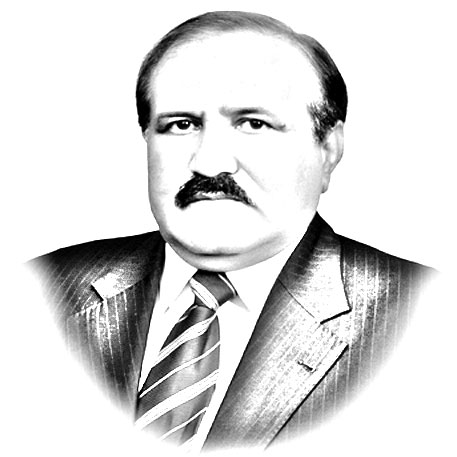Muhammad Usman
NATION celebrated the birth anniversary of Quaid-i-Azam on 25 December with traditional zeal, reverence and fervour. More or less, the day is celebrated as a ritual or tradition while missing its real essence. It ought to be a day of rededication to his ideals, principles and struggle to achieve what was considered an impossible in face of collusion of Hindus and British ruling masters. He made the impossible a reality within seven years and Pakistan as a nation state emerged by altering the geography of the subcontinent. Miracle happened which won’t happen in real politick until there is an overwhelming moving force. It was steely, self-actualized and statesman like personality of Quaid-i-Azam, matured over a long haul through steadfast labour, perseverance and self-denial amid ordeals, deception and despair.
There are three type of leaders. One, born as leaders. Two, made by long drawn and painstaking struggle and causes larger than their lives. Three, leaders made by circumstances. Quaid was born in a household with no silver spoon in his mouth. He saw every jigsaw of life good and proper before he was emphatically called upon by the greatest philosopher of the time, Allama Iqbal to lead the nation out of despair, despondency and waywardness in face of indomitable odds. He proved equal to the task scintillatingly by shortening the history without resorting to shortcuts or settling for less which he understood through his strenuous struggle of life. With death of his father, Jinnah Poonja and he himself at nascent stage of his career/life, he was badly situated financially/emotionally, yet he chose Bombay, a distant but big place to start his career in law. Probably something inside him urged to play at big screen.
At Bombay, he did not get a single lawsuit for three years yet he went to his office everyday as he had a plethora of cases in his cupboard however, instead of whiling away his time there in desperation, he laboured steadfastly. Personally, this enabled him to understand the ropes of the law profession in depth. He was able to learn the true meaning of honesty of purpose, devotion under stress and belief at sanctity of right means to achieve right ends. For Muslims in India, this rigorous preparation provided him the springboard on the path to win their case for a separate homeland. He was not only a great lawyer but also possessed class of his own as a congressman, leader of Muslims and world politician. Truly, he turned out to be a man of action, armed with power of the truth and reason. Once Gandhi and Nehru went to Viceroy to impress upon him to dismiss demand of Jinnah. After having listened to them, he said, you cannot defeat this man because he even thinks with truth. Endowed with this heavenly attribute, one becomes infallible for own sake. He becomes incorruptible and brave as said about him by his arch foe, Gandhi. He becomes incapable of willingly betraying the collective cause and in return, as an inbuilt consequence, wins unreserved devotion and loyalty of people. This dimension peaked to the limit in case of Quaid. Once he was addressing a gathering of ordinary flock in English and crowd was clapping feverishly. Seeing such an amazing sight, an English official asked how these people could do this when they don’t understand what the man is talking about. He was replied because these people think that whatever he is talking about is all truth. A leader at this high moral plane is unbeatable and this is what had happened with Indian Congress. “If Muslim League had 100 Gandhi and 200 Abdul Kalam Azad and Congress had only one Jinnah then India would never been divided” said Vijay Laxmi Pandit. British considered demand of Pakistan a non-sense, being extreme and preposterous however, combined strength of Hindus and British failed to deflect Quaid from his goal of securing a separate homeland for Muslims where they could fashion their lives according to their light.
Another thing which made Quaid even more, objective, resolute and fearless, was a sense of actualization in him. On return from England to India to lead Muslims, a well-wisher of Quaid asked him, did he know that his struggle may turn out to be a futile exercise all together because Muslims are disillusioned and have got alienated with Muslim League, being a party of elite. They were playing in the hands of Congress. Quaid replied that yes, he knew this but only what he wants is that on the Day of Judgment when he is presented to Allah Almighty and He says “well done Jinnah, you did your best”. Undoubtedly, imbued with such a motivation, one could move the world and he did it in more ways than one. Precisely this is the reason which prompted Stanley Wolpert to write in his book – Jinnah of Pakistan “few individuals significantly alter the course of history. Fewer still modify the map of the world. Hardly anyone can be credited with creating a nation state. Mohammad Ali Jinnah did all three”. In my humble capacity, the above discourse is aimed at highlighting the personality of Quaid-i-Azam, nurtured with truth, hard work, honesty of purpose, devotion and reason. This would be the right way of commemorating the Quaid if we draw lessons from his resounding personality, principles/ideas and heroic struggle and act upon them. Unfortunately, our love for him is superficial. We have confined it to his portrait on currency notes, stamps and walls of offices/buildings and visiting his mausoleum on his anniversaries/national days.
— The writer, a retired Lt Col, is a senior columnist based in Islamabad.










